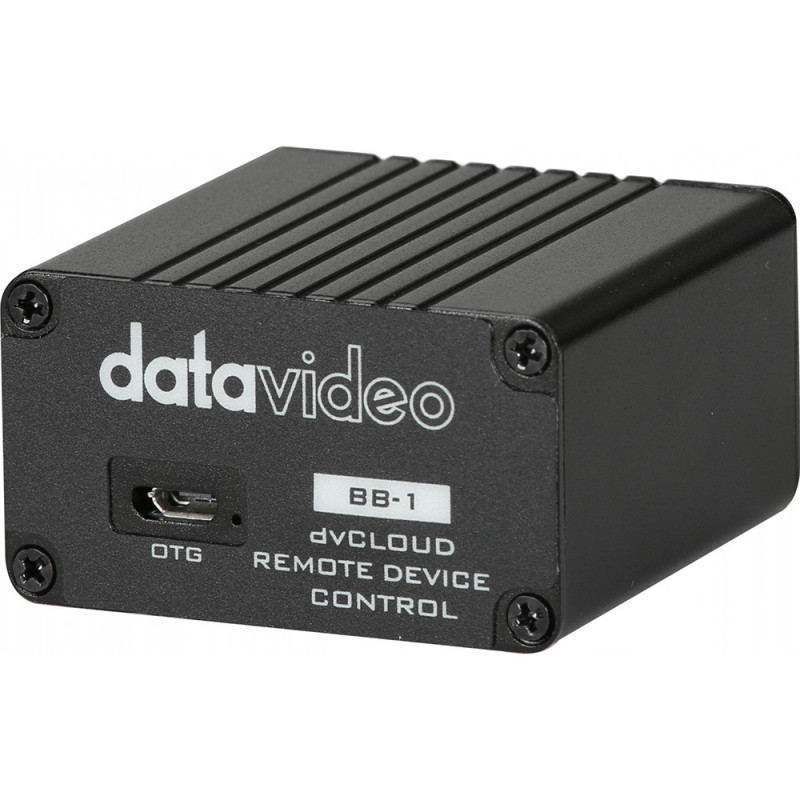











Not available.
delivery is not available for this product.
Free Shipping for order equal or above € 199 are limited for delivery within Europe
867.50 €
623.00 €
476.00 €

Product Details
BB-1 is a device that allows you to access almost all IP-enabled Datavideo devices, such as PTZ cameras and switchers, over the public Internet.
The BB-1 is completely transparent, which means you can access remote devices just like you would locally. BB-1 is powered by Datavideo's dvCloud platform, so it doesn't require any network or firewall configuration. Simply link your BB-1s to your dvCloud account and manage your shared devices from anywhere using the easy-to-use Datavideo web interface. Each dvCloud Professional subscription supports up to 6 BB-1s, while the Essentials plan supports two BB-1s.
The remote links created by BB-1 can be used to access or control any IP-controllable device, easily creating a variety of remote workflows by adding camera controllers, switchers, workstations, encoders, decoders, teleprompters and more other.
A single BB-1 pair will allow control of up to 5 devices in each location, each additional BB-1 will provide access to a further 5 devices. Devices can connect to the Internet just as if they were on the same local network.
BB-1 automatically detects all available Datavideo devices, just select the devices you want to share and it can provide remote access to devices connected to your existing network or create your own, as you choose.
All data sent between BB-1 is secured using 256-bit encryption. BB-1 can provide remote access to devices on an existing local network or create your own isolated network if needed.
Many broadcasters have experienced pixelated video when live streaming, often due to unstable network environments caused by bandwidth instability. RTMP streaming over unreliable and low bandwidth networks can cause problems. With the BB-1 workflow combined with dvCloud supporting SRT technology, you can now replace the RTMP protocol with SRT. The latter protocol is better than RTMP because it handles problematic networks more efficiently and fixes data errors faster. As a result, you will have a better stream, with less buffering and lower latency.
Technical characteristics